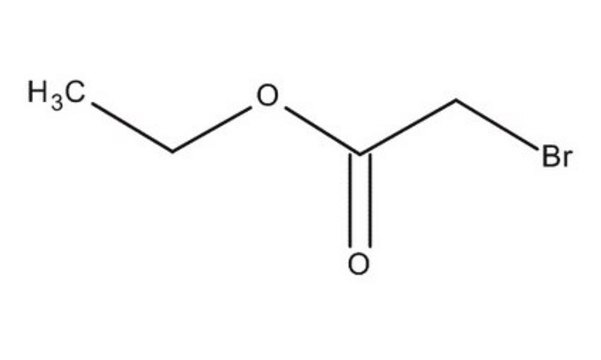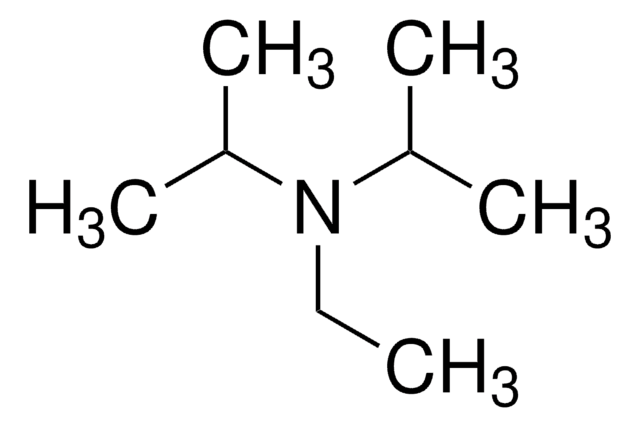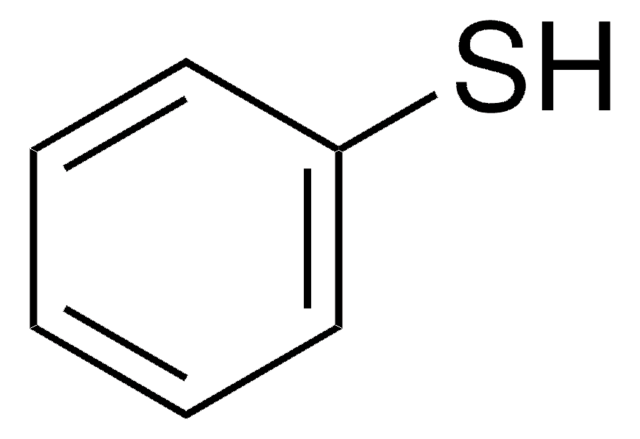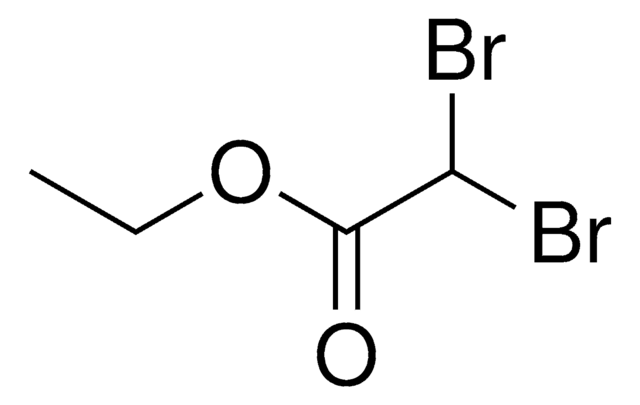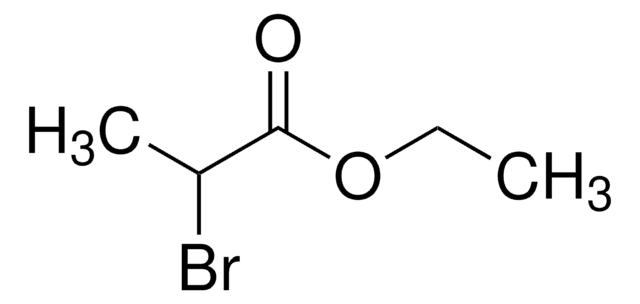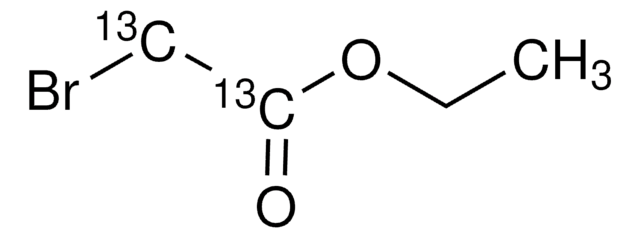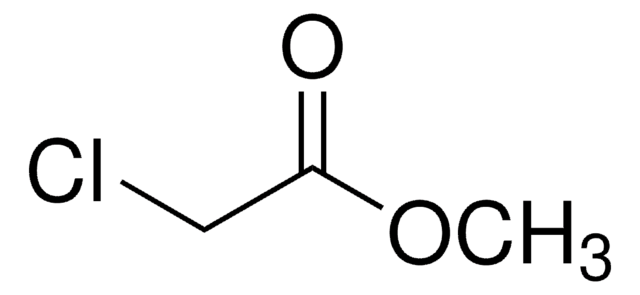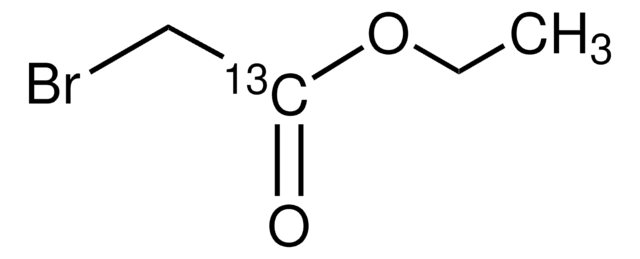133973
Ethyl bromoacetate
reagent grade, 98%
Synonym(s):
Bromoacetic acid ethyl ester, Ethyl 2-bromoacetate
About This Item
Recommended Products
grade
reagent grade
Quality Level
vapor pressure
2.6 mmHg ( 25 °C)
Assay
98%
form
liquid
refractive index
n20/D 1.451 (lit.)
bp
159 °C (lit.)
solubility
water: insoluble
density
1.506 g/mL at 25 °C (lit.)
SMILES string
CCOC(=O)CBr
InChI
1S/C4H7BrO2/c1-2-7-4(6)3-5/h2-3H2,1H3
InChI key
PQJJJMRNHATNKG-UHFFFAOYSA-N
Looking for similar products? Visit Product Comparison Guide
Related Categories
General description
Application
Signal Word
Danger
Hazard Statements
Precautionary Statements
Hazard Classifications
Acute Tox. 1 Dermal - Acute Tox. 2 Inhalation - Acute Tox. 2 Oral - Flam. Liq. 3
Storage Class Code
3 - Flammable liquids
WGK
WGK 3
Flash Point(F)
116.6 °F - closed cup
Flash Point(C)
47 °C - closed cup
Personal Protective Equipment
Regulatory Listings
Regulatory Listings are mainly provided for chemical products. Only limited information can be provided here for non-chemical products. No entry means none of the components are listed. It is the user’s obligation to ensure the safe and legal use of the product.
EU REACH Annex XVII (Restriction List)
Certificates of Analysis (COA)
Search for Certificates of Analysis (COA) by entering the products Lot/Batch Number. Lot and Batch Numbers can be found on a product’s label following the words ‘Lot’ or ‘Batch’.
Already Own This Product?
Find documentation for the products that you have recently purchased in the Document Library.
Customers Also Viewed
Our team of scientists has experience in all areas of research including Life Science, Material Science, Chemical Synthesis, Chromatography, Analytical and many others.
Contact Technical Service

